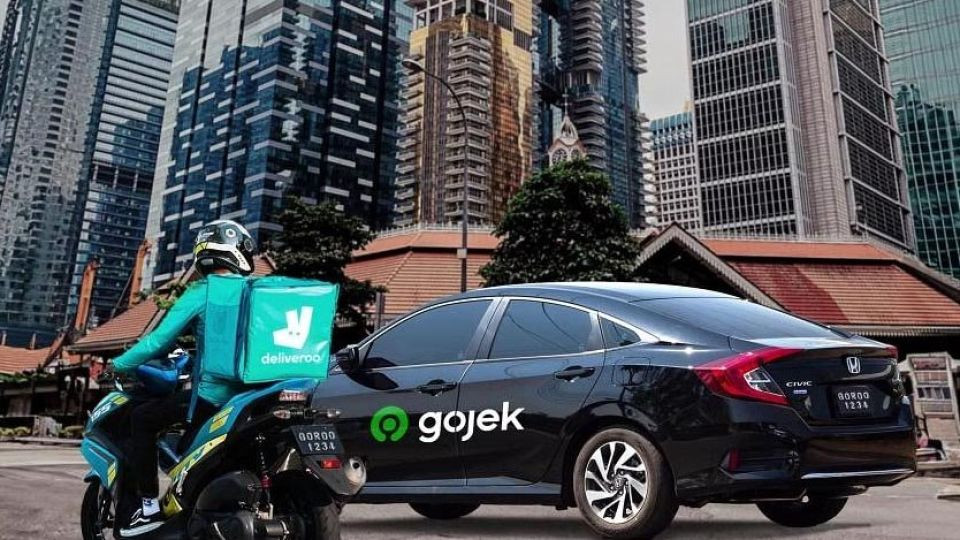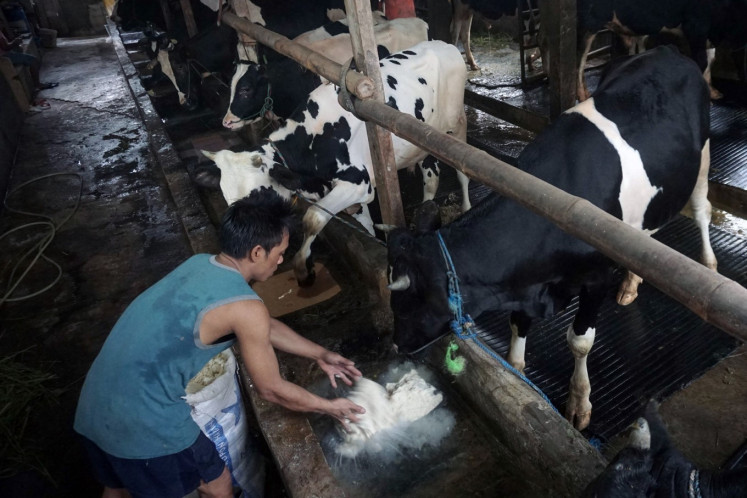Popular Reads
Top Results
Can't find what you're looking for?
View all search resultsPopular Reads
Top Results
Can't find what you're looking for?
View all search resultsDeliveroo partners Gojek to challenge Grab's dominance in Singapore
This is the second collaboration here between a food-delivery company and a ride-hailing service, following Foodpanda and Tada’s partnership in April.
Change text size
Gift Premium Articles
to Anyone
F
ood-delivery company Deliveroo and ride-hailing firm Gojek tied up on Tuesday to offer savings and rewards to customers on both platforms.
This is the second collaboration here between a food-delivery company and a ride-hailing service, following Foodpanda and Tada’s partnership in April.
Foodpanda and the blockchain-based ride-hailing company are granting their users discounted fares and loyalty program subscriptions across both platforms.
Some transport analysts and economists The Straits Times spoke to said the Deliveroo-Gojek deal is aimed strategically at strengthening these companies’ foothold in the food-delivery and ride-hailing markets, which are dominated by Grab.
Lawrence Loh from the National University of Singapore (NUS) Business School said that the food-delivery and ride-hailing markets are currently undergoing consolidation to create “shake-ups” across different sectors.
“It’s a win-win collaboration because Gojek can use it as a launchpad into Singapore’s food-delivery market, and Deliveroo can gain a competitive edge beyond food-delivery services.”
He said it is “about time” for such a move following Grab’s recent acquisition of taxi company Trans-Cab, as Gojek and Deliveroo’s combination of resources allows them to gain cost savings, leverage profit-making opportunities and attract multi-sector customers, all of which can undermine Grab’s dominance.
As part of the deal, Gojek passengers taking eight rides in a month can receive S$8 worth of Deliveroo vouchers.
The two companies will also work on joint initiatives to build customer loyalty and create more opportunities for increased earnings for their driver partners and delivery riders.
Deliveroo had collaborated with Gojek during the COVID-19 pandemic, when Gojek drivers took on food-delivery jobs to strengthen Deliveroo’s supply of delivery riders.
The spokesmen for both companies said in a joint statement: “Creating the best experience for users is key to driving choice and preference within the platform industry. Our aim is to bring greater value to users of both platforms through extensive new benefits and cross-platform savings.”
When asked whether Gojek will consider branching into food-delivery services like it has done as a multi-service app in Indonesia, its spokesman said: “Our focus [in Singapore] remains on ride-hailing, and continuing to support our driver partners amid increasing demand for rides and higher operating costs for them.”
Grab wields considerable market power, commanding up to 75 percent of the ride-hailing sector here.
Walter Theseira from the Singapore University of Social Sciences said: “Smaller players have to compensate for their smaller network sizes by offering consumers a better deal… because larger players can always offer more efficient services.”
But he questioned the impact of the expansion of customer base on Gojek’s and Deliveroo’s businesses, since the tie-up does not involve the full integration of operational services.
Theseira felt that both platforms are not significantly complementary to each other as the resources they use – in terms of vehicles and manpower – cannot be shared.
He also said consumer demand for such “one-stop” services in Singapore may not be high.
Nitin Pangarkar from NUS Business School described the partnership as an attempt by the smaller players to “nibble at the leader’s market share”, which is the best they can do.
He said: “These smaller firms need the cost savings since they do not have large volumes of customers… The extra reward incentives will be useful in sustaining customer loyalty, so why not?”
Pangarkar added that Gojek can tap this collaboration to understand the food-delivery market before committing to full-scale expansion if that is in its plans.
Grab declined to comment on the new partnership when contacted by ST.











